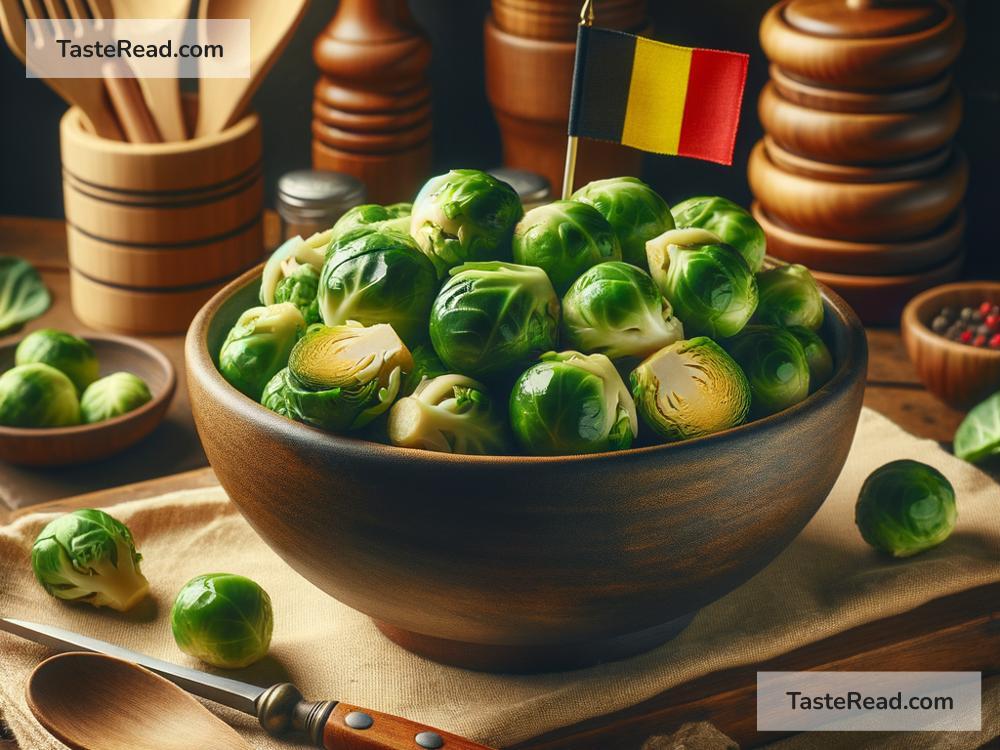Why are Brussels Sprouts Named After Brussels?
Brussels sprouts—love them or hate them—are tiny green vegetables that look like miniature cabbages. They’re packed with nutrients, famously divisive at dinner tables, and often associated with holiday meals. But one question that might cross your mind as you munch on (or avoid) these veggies is, “Why are they named after Brussels?” Are they somehow connected to the Belgian capital? Let’s dive into the fascinating origin of the name and uncover the curious link between Brussels sprouts and Brussels.
The History of Brussels Sprouts
To understand the name, we first need to learn a bit about the history of Brussels sprouts themselves. These little vegetables are part of the Brassica family of plants, which includes cabbage, kale, broccoli, and cauliflower. They all share similar genetics and have been cultivated for thousands of years.
Brussels sprouts were likely first grown in ancient Rome, where farmers began experimenting with wild plants in the Brassica family to create new crops. However, Brussels sprouts as we know them today didn’t become widespread until much later.
By the Middle Ages, farmers in Europe started improving the technique of growing these small sprouts. Historical records show that sometime between the 13th and 16th centuries, they became a popular crop in what is now Belgium. The climate and soil in the region made it ideal for growing these hardy vegetables, which could survive cold winters. Over time, Belgian farmers mastered the art of cultivating Brussels sprouts, turning them into a big part of their diets and a notable agricultural product.
The Link to Brussels
So, how does Brussels fit into the story? Brussels sprouts are believed to have been widely grown near Brussels, the capital city of Belgium, as early as the 13th century. Belgium, being a hub for trade and agriculture, helped these vegetables gain attention in Western Europe.
By the 18th century, this connection between the vegetable and the city became solidified. When the sprouts started spreading to other countries, people likely referred to them by their association with Brussels, where they were grown in abundance. Farmers and merchants needed a name to distinguish these tiny cabbage-like vegetables from other crops, and the name “Brussels sprouts” stuck.
It’s worth noting that this naming process wasn’t official or scientific; it was more practical. Back then, it was common to name foods after places where they were cultivated or became popular. For example, “Buffalo wings” are named after Buffalo, New York, and “Champagne” is named after the Champagne region in France. Similarly, Brussels sprouts were named after Brussels because of their strong connection to the region.
Fun Facts About Brussels Sprouts
Now that we know why Brussels sprouts are named after Brussels, let’s learn a little more about these veggies. Whether you love them or not, they’re fascinating!
-
Nutrition Powerhouses: Brussels sprouts may be small, but they pack a big punch when it comes to nutrition. They are rich in vitamins C and K, as well as fiber, antioxidants, and other nutrients. Eating them regularly can help support your immune system, reduce inflammation, and improve digestion.
-
Divisive Taste: Brussels sprouts have a reputation for being disliked by many. Some people find them bitter, which comes from natural compounds like glucosinolates. However, cooking techniques like roasting or sautéing can bring out their sweeter, nutty flavor.
-
They’re Trending: In recent years, Brussels sprouts have made a comeback as a trendy vegetable. You can now find them served in fancy restaurants, often roasted with garlic, drizzled with balsamic vinegar, or tossed with bacon.
-
Global Spread: Brussels sprouts may be named after the Belgian capital, but today they’re enjoyed all over the world. They’ve even become a staple in American holiday meals like Thanksgiving and Christmas.
-
Tiny but Mighty: Each Brussels sprout grows on a tall stalk, often reaching up to 2–3 feet. Farmers typically harvest them by cutting the individual sprouts off the stalk, one by one.
Are Brussels Sprouts Belgian?
While Brussels sprouts originated in the region now known as Belgium, they might not feel particularly “Belgian” today. After all, Belgium is famous for foods like waffles, chocolate, and fries—not so much vegetables! However, Belgians remain proud of their association with the veggie, especially since it’s named after their capital city.
Many people don’t realize that Belgium’s farming heritage played a huge role in cultivating crops like Brussels sprouts. So, whether or not you enjoy the taste of these vegetables, it’s nice to know that they have a long and unique history tied to a specific place.
The Bottom Line
The name “Brussels sprouts” pays homage to Brussels, the capital city of Belgium, where these vegetables were widely grown hundreds of years ago. While they might have started as a local crop, they’ve since become a worldwide phenomenon, making their way to dinner tables all across the globe.
So, the next time you see Brussels sprouts on your plate, you can appreciate their history—even if you’re not a fan of the taste! From ancient Rome to the kitchens of modern chefs, these little greens have journeyed far and wide. And who knows? Maybe learning about their backstory will make them just a little more enjoyable.


